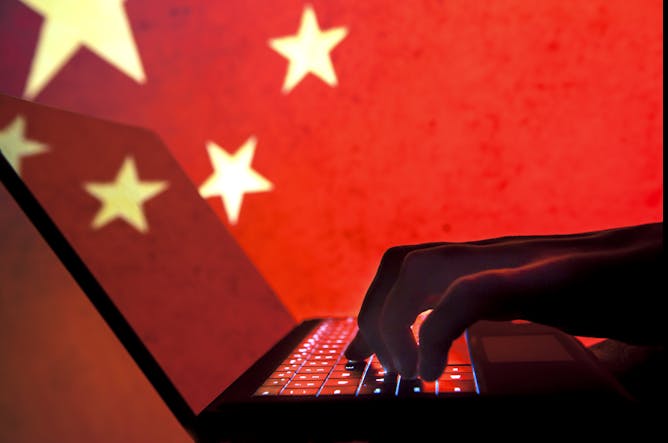|
|
|
|
Top headlines
Lead story
Every year, in the days leading up to June 4, Chinese censors scour the internet in an attempt to suppress any domestic mention of Tiananmen Square. Dissidents trying to use that date – the anniversary of the 1989 massacre – to promote pro-democracy activism are confronted by blocked sites, banned words and even disappearing candle emojis.
They also experience an uptick in malicious cyber operations. While much of this is done in the shadows, a recent restructuring of China’s cyber workforce and a documents leak reveal a hacking ecosystem in which government officials and commercial operators are increasingly working hand in hand, explains Christopher K. Tong, a China expert at the University of Maryland, Baltimore County.
While turning to hackers-for-profit has its drawbacks for officials – those involved have their own motivations that sometimes go beyond official policy – it does help spread the reach of China’s cyber operations, he notes.
“In short, Beijing is outsourcing its cyber operations to a patchwork army of private-sector hackers who offer their services out of a mix of nationalism and profit,” writes Tong.
[ Understand what’s going on in Washington and around the world. Get our Politics Weekly newsletter. ]
|

|
Matt Williams
Senior International Editor
|
|

Hackers-for-profit are assisting the Chinese government.
Bill Hinton Photography via Getty Images
Christopher K. Tong, University of Maryland, Baltimore County
Beijing’s cyber operations are largely conducted in the shadows. But a recent leak has shed light on how the state is working with private companies to target online activism.
|
Environment + Energy
|
-
Alex A. Moulton, Hunter College; Thera Edwards, The University of the West Indies
Not all reparations involve money. Returning unique scientific resources is also a way of showing respect and righting past harms.
|
|
International
|
-
Luis Gómez Romero, University of Wollongong
What can Mexico expect from the former mayor of the capital after an historic election?
|
|
Politics + Society
|
-
Ronald Sievert, Texas A&M University
A former government prosecutor examines the choice to prosecute a polarizing former president.
-
Lincoln Mitchell, Columbia University
Trump was the first US president from New York City since Teddy Roosevelt, but he was never a hometown hero. City residents celebrated after Biden’s win and again after Trump’s conviction.
-
Anne Whitesell, Miami University
While anti-abortion rights activists have lobbied politicians to enforce trigger laws in some states, these advocates have not faced opposition in other places.
-
Kathleen Knight Abowitz, Miami University
A tradition of nonpartisanship on locally elected school boards is changing, following a national shift toward divisive political partisanship.
|
|
Arts + Culture
|
-
Jess Reia, University of Virginia
Framing dissent and poverty as a menace to public order can threaten fundamental rights, particularly when it’s used to justify the deployment of predictive technology.
|
|
Health + Medicine
|
-
Mary Scourboutakos, Eastern Virginia Medical School
Many prenatal supplements don’t have enough folate, choline and omega-3 fatty acids.
|
|
Science + Technology
|
-
Nathan Schneider, University of Colorado Boulder
Americans associate with each other more online than off these days. How people interact in digital communities could have a big impact on democracy.
-
Cole Mathis, Arizona State University
It’s hard to look for something you’ve never seen before – and that might not even exist. But you have to start somewhere.
|
|
Education
|
-
Christopher R. Dennison, University at Buffalo; Jessica Finkeldey, State University of New York at Fredonia; Nicholas Tucker Reyes, University at Buffalo
Prior encounters with police didn’t negatively affect student views of campus police, but perceptions varied among students from different ethnic and racial groups and LGBTQ+ students.
|
|
Economy + Business
|
-
Yoonseock Son, University of Notre Dame; Angela Aerry Choi, Sungkyunkwan University; Corey Angst, University of Notre Dame; Kaitlin Wowak, University of Notre Dame
Not even online shopping is free from gender bias.
|
|
|
|
Author Comments 💬 |
|---|
"The literature shows that the healthiest individuals use a combination of tech/social media and in-person engagement. However, the way the US has been set up doesn’t always lend itself so well to building community … large sprawling cities, cities with no center, etc. etc. I’ve been traveling over the last two years and one common theme from Chicago to St Louis and lands beyond is that our cities are struggling. I had thought, because of where I live, that it was a rural thing, but no it’s an everywhere thing. We truly are in a loneliness epidemic.”
– Author Christopher T. Conner on the story What QAnon supporters, butthole sunners and New Age spiritualists have in common
-
More of The ConversationLike this newsletter? You might be interested in our weekly and biweekly emails: Follow us on social media: -
About The ConversationWe're a nonprofit news organization dedicated to bringing you facts and trustworthy analysis to help you make sense of our complex world. We can give away our articles thanks to the help of foundations, universities and readers like you.
|
|
| |
| |
| |
| |
|
|
|
|
|
|
|